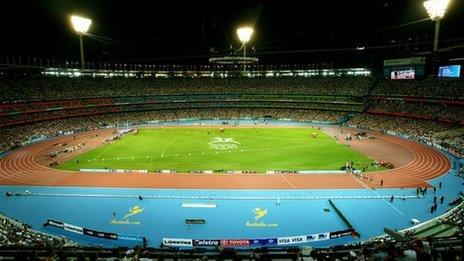Commonwealth Games: No 2026 bid from Wales, says Skates
- Published
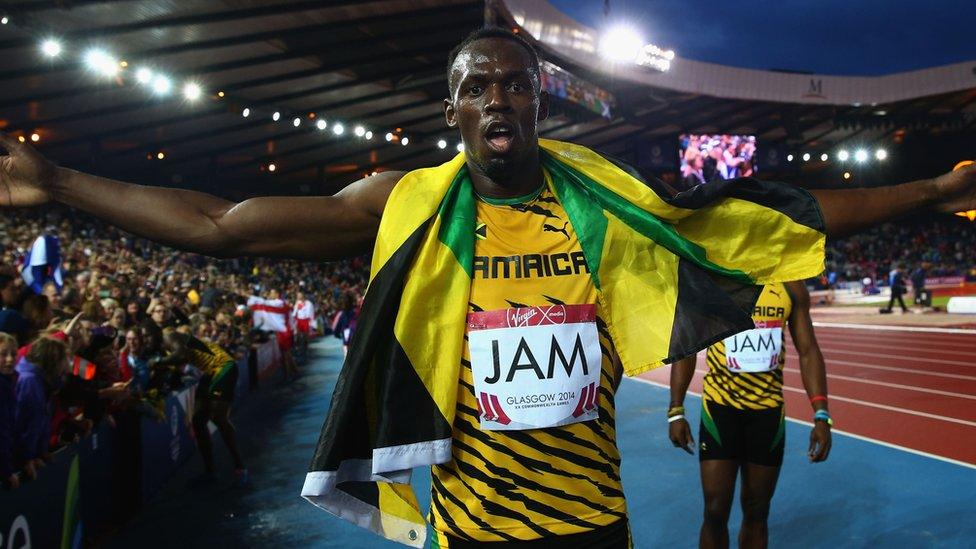
Wales will not bid for the 2026 Commonwealth Games, Welsh ministers have said, blaming the high cost and funding uncertainty due to Brexit.
Economy Secretary Ken Skates said a bid was not feasible after a study revealed costs of between £1.3bn and £1.5bn.
The Commonwealth Games Federation [CGF] said it was "surprised" by the figures quoted, with the 2014 Glasgow Games having cost £543m.
Plaid Cymru and Tory politicians attacked the decision not to bid.
Both parties had backed the idea, with Welsh Conservative leader Andrew RT Davies calling the announcement "pathetic".
The Welsh Government had been exploring the possibility of making a bid with a number of bodies including local councils and Sport Wales.
Ministers had preferred an all-Wales plan which Mr Skates said "would have helped to ensure the benefits of the games were felt across Wales".
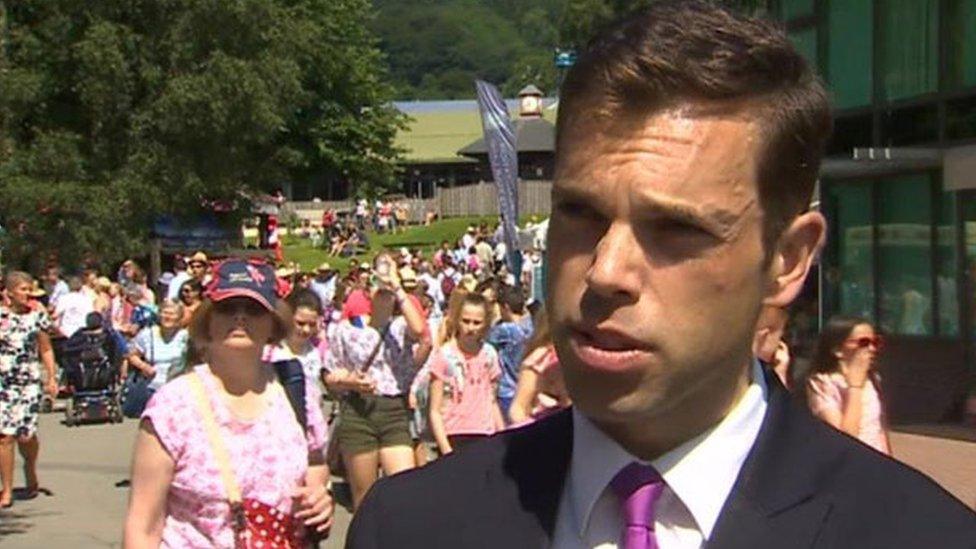
Ken Skates said work on a feasibility study was 'not wasted'
The feasibility study, external put the cost of that option at between £1.3bn and £1.5bn, but it found that Commonwealth Games Wales (CGW) would not have submitted such a bid as it would not meet the requirements of the Commonwealth Games Federation.
In contrast, a bid focused in south east Wales was thought to have cost around £220m less and was said to be the most "compelling" option to secure votes from the Commonwealth Games "family".
Mr Skates said: "Given the high cost, our understanding that an all-Wales bid was less likely to be supported and the current funding uncertainty following the vote to leave the EU, we have reluctantly concluded that the bid for the 2026 Commonwealth Games is not feasible."
He said the work was not wasted and has "highlighted the need for us to undertake a review of sports facilities in Wales with a view to increasing our spread of world class venues".
But David Grevemberg, chief executive of the CGF, said the federation was "surprised by the ambitious costs quoted and attributed to the games, given the last edition of the games in Glasgow in 2014 was operationally delivered for £543m - and indeed £32m under budget - according to an independent Audit Scotland report".
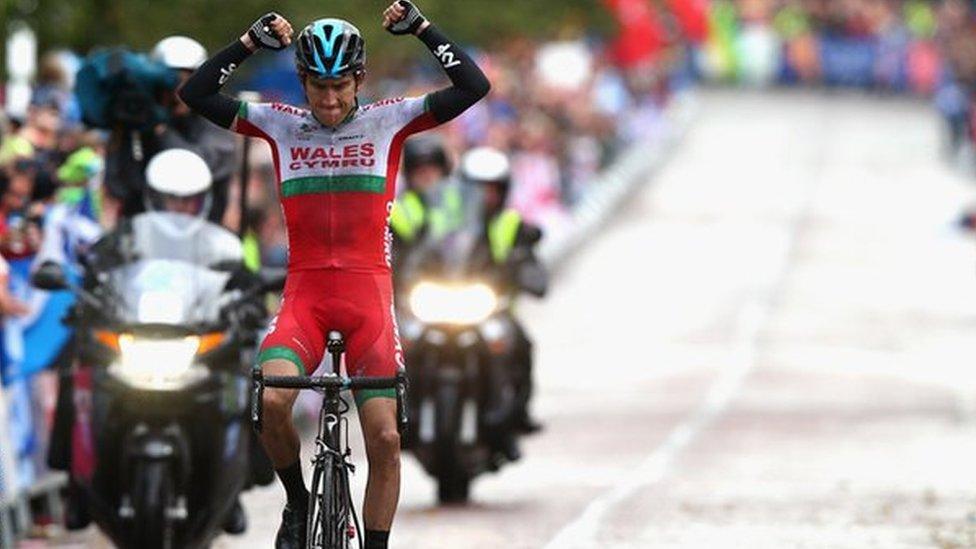
Geraint Thomas winning gold at the Glasgow Commonwealth Games
Helen Phillips, chairwoman of CGW, said the organisation was disappointed but understood the reasons for the decision.
Plaid Cymru shadow health secretary Rhun ap Iorwerth said: "Investing in sport is crucial for the nation's health.
"Sadly, by failing to recognise this, the Labour Welsh Government have scored a major own goal."
Welsh Secretary Alun Cairns said: "There are of course uncertainties about the world post-Brexit, but the economic benefits of the Commonwealth Games are vast."
Mr Davies said it was "rather pathetic that the Welsh Government is once again attempting to use Brexit as a smokescreen to disguise a lack of ambition and imagination".

Analysis by BBC Wales political editor Nick Servini
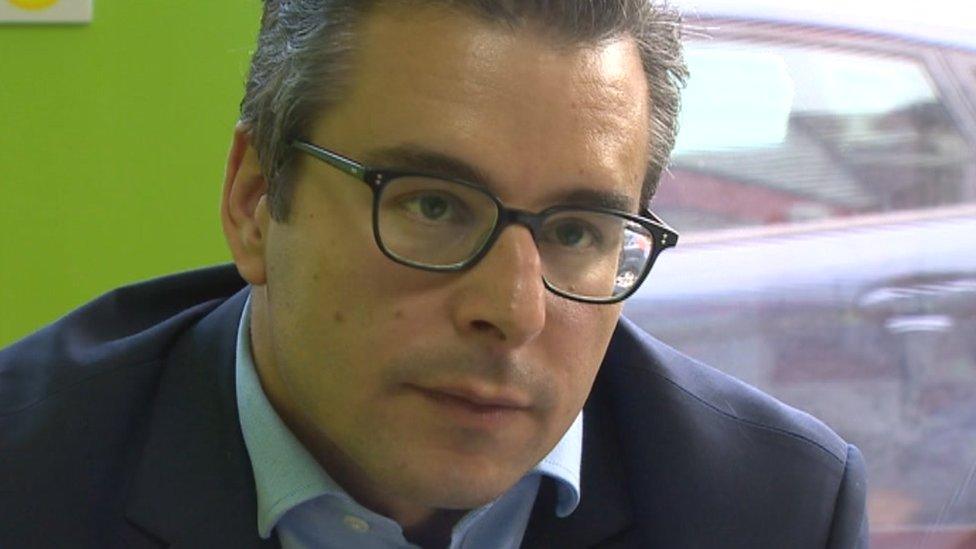
To blame the dropping of the bid on leaving the EU makes it an issue just at the point when the messages are critical.
The danger for ministers is how the failure to bid for the games contrasts with virtually every other statement saying that Wales is open for business.
Critics will argue that the role of a government at times like these is to provide confidence.
But there will be many who say this is sensible at a time of huge uncertainty.
- Attribution
- Published28 March 2016
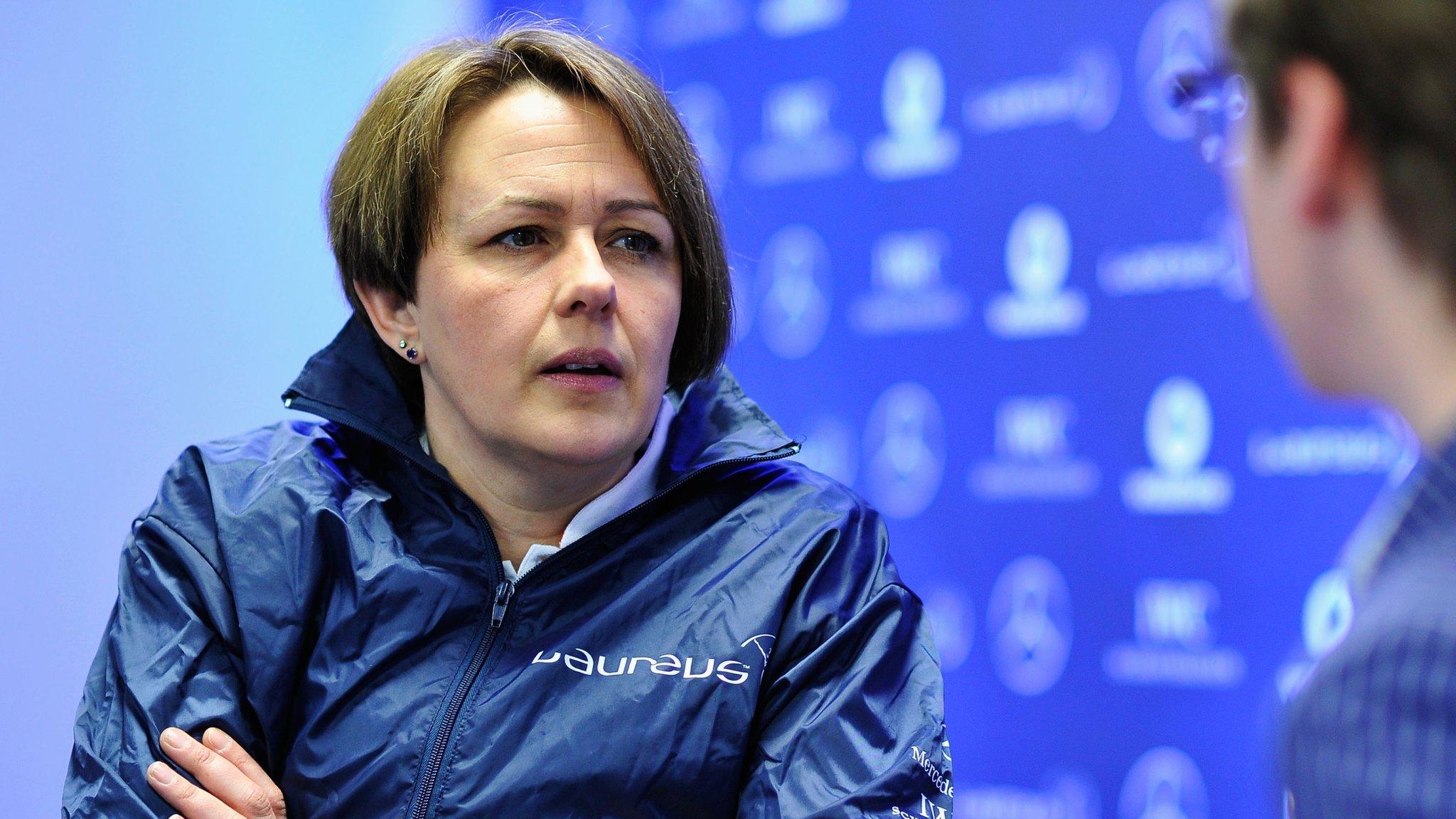
- Published20 April 2015
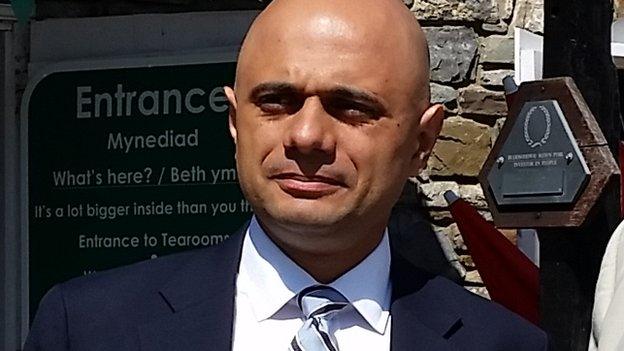
- Published22 January 2014
